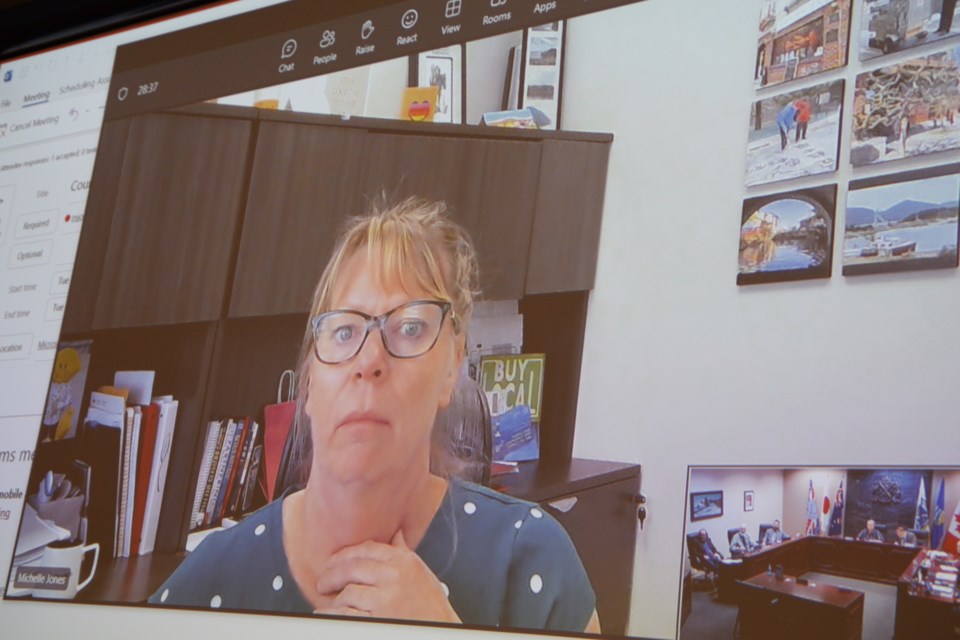BARRHEAD - Businesses in the Barrhead community applied for and received roughly $500,000 in Regional Relief Renewal Fund (RRRF) loans through Community Futures Yellowhead East (CFYE).
But while the loans may have been a lifeline to businesses struggling to stay alive during the pandemic, CFYE executive director Michelle Jones said during a May 9 teleconference with Town of Barrhead councillors that she is worried about what will happen to those businesses when they default on the loans.
Community Futures is a not-for-profit community-driven organization that provides a wide range of small business services and business management tools for people wanting to start or expand an existing business and those looking to sell or buy a business. It was founded in 1986 and is funded by the federal government in Western Canada by Western Economic Diversification (now PrairiesCan). The Yellowhead East branch is based in Whitecourt and is one of 27 in Alberta.
To help small and medium-sized businesses negatively impacted by the pandemic survive, the federal government created the $2-billion RRRF. Most businesses accessed this fund through their bank and applied for $40,000 or $60,000 interest-free, partially forgivable loans.
But Jones said many small businesses could not access the loans through a traditional bank because they were either the sole proprietor or did not have a business bank account, so the federal and provincial governments provided Community Futures branches with funding to give those businesses an avenue to apply for those loans.
All-totaled, CFYE helped 53 clients receive more than $2.5 million in RRRF loans.
She said CFYE contacted their RRRF clients about six months ago to ask whether or not they were confident they could repay their loan by the Dec. 31, 2023, partial load recovery deadline, adding their response was worrisome.
"Only eight per cent had started to repay the loan, and 18 per cent said they had some sort of plan on how to repay the loan, leaving a whopping 74 per cent that told us that they don't have a clue, that they had not even thought about it," Jones said. "They are just worried about keeping the lights on."
She added the provincial numbers are just as troubling, noting that according to a study involving 25 Community Futures offices, 77 per cent of loan recipients still had not bounced back to their pre-pandemic level.
However, she said the most concerning thing is that no one in the federal government has told them or their clients about what happens if they do not start paying their loans by the deadline.
For those clients that miss the Dec. 31, 2023, partial loan forgiveness deadline, she noted they will have two years in which they will have to make monthly payments on the amount they owe.
"If that is the full amount, that will be looking at a $2,500 monthly payment on top of any other debt payments," she said.
Jones suggested that the government should extend the payments allowing their clients to have more manageable monthly installments.
As for what would happen when a business misses its payments, Jones said they would be sending a series of notices.
"First notice, your payment is late; second notice, we don't have a payment; notice three, strike you're out, but we still are not sure what that means," she said. "We've been told but haven't received confirmation that means that we turn those clients over to the (Candian Revenue Agency)."
Coun. Rod Klumph asked if businesses needed to pay back the RRRF loan monetarily, suggesting using work or product in-kind.
Jones replied that one option people have suggested is that Community Futures could use their regular loan fund to provide RRRF clients bridge funding so they can make their monthly payments.
As part of its annual performance plan, CFYE is expected to approve at least eight loans annually for a value of $400,000 from its regular loan fund.
"Although we are a developmental lender, we take calculated risks to protect our loan portfolio, to ensure we can lend it out again in the future. It is a difficult balance to be able to loan out enough to meet our criteria so we don't lose our funding."
And while they do approve loans with more risk, Jones does not foresee them approving loan applications from their regular loan fund to businesses who cannot make their RRRF payments.
"We know they're coming, but we do not provide loans to pay down or consolidate debt unless there is a business case for it, where they are making a bunch of sales and have security," she said. "And we know the banks will be doing nothing. They will not be refinancing those loans."
Coun. Dausen Kluin asked if there is anything municipalities could do to help advocate for CFYE RRRF clients.
Jones said they can write PrairieCans, along with their MLA and MP, about their concerns regarding what will happen to the businesses in their communities that cannot pay back the RRRF and pressure them to have a plan in place to deal with it.
Barry Kerton, TownandCountryToday.com



